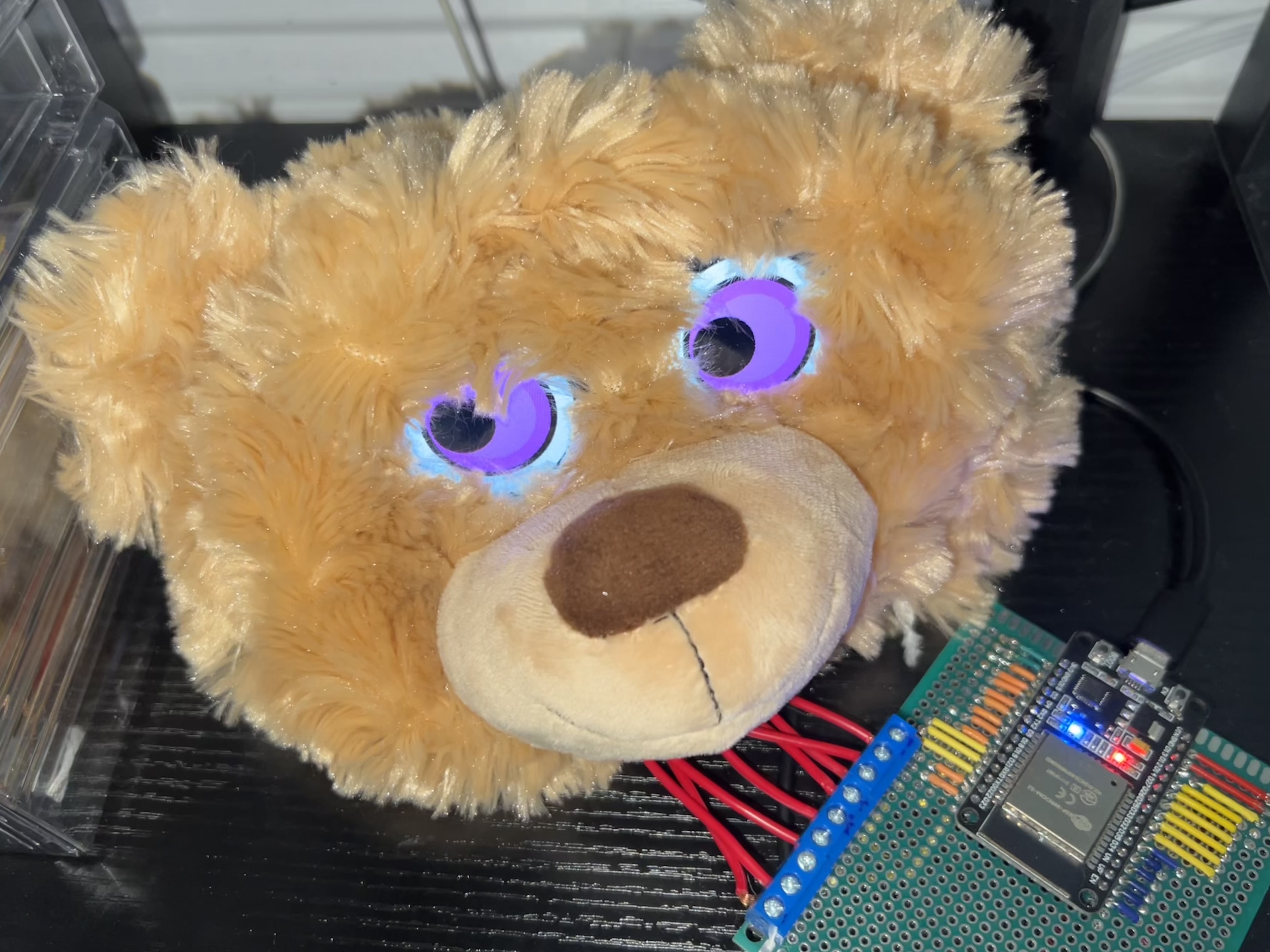Current Projects

TechnoTeddy
Features a mechatronic / animatronic teddybear ESP32 + servo motor + 2x TFT LCD displays + 2x microphone modules with responsive eye animation to audio input volume & direction, and buttons to change eye color.
Full-Stack Developer & Creative Technologist
I build web apps & embedded systems (microcontroller projects) with an obsessive attention to detail.
Hire MeBuilding clean, scalable, production-ready applications.
Expert at designing and coding entire systems — front end, back end, databases, APIs, authentication, and deployment pipelines. I prefer clean structure, reliable patterns, and maintainable code.
Hardware, firmware, microcontrollers, and electronics.
From ESP32 animation engines to custom sensors, display drivers, servo-controlled robotics, and energy-aware builds — I love connecting software to the physical world.
From pixel rendering and microcontrollers to API design and CI/CD — I keep my skills sharp.
Responsive UX, custom components, Bootstrap 5, animations, and visually engaging interfaces that feel smooth and intentional.
Secure sessions, authentication flows, database design, REST endpoints, and clean server-side logic using PHP and MySQL.
Hardware integration, real-time data handling, IoT devices, microcontrollers, and performance-conscious coding.

TechnoTeddy
Features a mechatronic / animatronic teddybear ESP32 + servo motor + 2x TFT LCD displays + 2x microphone modules with responsive eye animation to audio input volume & direction, and buttons to change eye color.

I’m the type of engineer who learns a new language or framework just to fix something that bothers me. I enjoy understanding how things work at every level — from pixels and UI timing all the way down to memory usage, buffers, and timing loops on microcontrollers. If something breaks, I don’t quit. I debug, dissect, and rebuild it the right way. It’s just how my brain works.